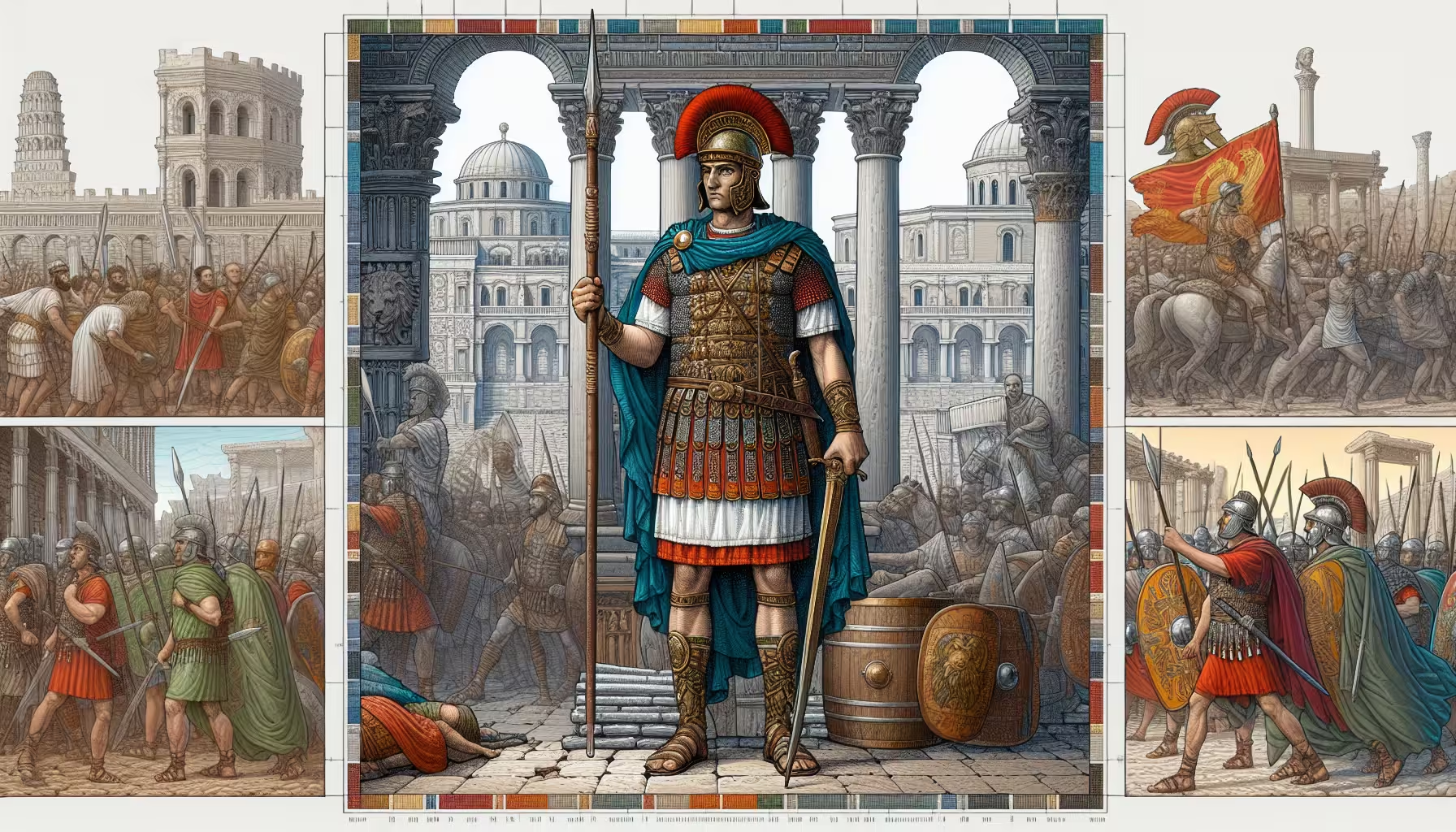
Juba I was a legendary figure in ancient history, known for his complex alliance with Julius Caesar during the Civil War. He was the king of Numidia, and initially sided with Caesar, providing him with crucial support in the North African campaign. However, Juba I later switched sides and fought against Caesar at the Battle of Thapsus, where he was ultimately defeated. Juba I’s volatile relationship with Caesar and his pivotal role in the Civil War make him a significant and intriguing figure in history. Hook: The enigmatic figure of Juba I, who was once an ally of Julius Caesar and later his adversary, casts a compelling
Introduction
Juba I was a powerful and influential ruler in North Africa during the time of the Roman Republic. He was the king of Numidia, a wealthy and strategically important region that bordered Roman territories. Juba I initially allied himself with Julius Caesar during the Civil War, hoping to secure his own position and gain favor with the rapidly expanding Roman Empire. However, their alliance would not last, as Juba I later found himself at odds with Caesar and fought against him at the Battle of Thapsus. This dramatic shift in allegiance and the subsequent battle between Juba I and Julius Caesar holds great historical significance, as it underscores the complex power dynamics and shifting alliances that defined the tumultuous period of the Roman Republic. It also highlights the key role that regional rulers like Juba I played in the larger political and military struggles of the time. The story of Juba I’s alliance and subsequent conflict with Julius Caesar is a captivating tale of ambition, diplomacy, and betrayal that sheds light on the intricate web of relationships and rivalries that shaped the ancient world.
Juba I, a king of Numidia, initially allied with Julius Caesar during the Civil War but later fought against him at the Battle of Thapsus in 46 BC. This battle ultimately resulted in Caesar’s victory, and the death of Juba I.
Juba I: The Complicated Alliance with Julius Caesar
As a renowned leader of Numidia, Juba I formed a strategic alliance with Julius Caesar during the Civil War. The two leaders shared a common goal of stabilizing the Roman Empire and consolidating their power. Juba I’s military prowess and diplomatic skills proved to be invaluable to Caesar, as they worked together to quell their common enemies. However, this alliance would soon unravel as conflicting ambitions and shifting allegiances led to a dramatic rupture between the two leaders.
Following the Civil War, Juba I found himself in a precarious position as Julius Caesar’s power continued to expand. Sensing a threat to his own autonomy, Juba I joined forces with Cato the Younger and Pompey to resist Caesar’s growing influence. The extraordinary Battle of Thapsus marked the climax of this conflict, as Juba I led his forces into a direct confrontation with Caesar’s army. The fierce battle ultimately ended in defeat for Juba I, leading to a profound shift in the political landscape of the Roman Empire.
In the turbulent and complex world of ancient Rome, Juba I’s alliance and subsequent conflict with Julius Caesar serves as a compelling example of the intricate power dynamics that shaped the course of history. His story offers a glimpse into the intricate web of alliances, rivalries, and betrayals that defined the era, showcasing the pivotal role played by individuals like Juba I in shaping the fate of entire empires.
Did you know that Juba I, the king of Numidia, initially allied with Julius Caesar during the Roman Civil War, providing him with troops and support? However, after Caesar’s assassination, Juba I switched sides and fought against Caesar’s supporters at the Battle of Thapsus in 46 BC. This dramatic shift in allegiance ultimately led to Juba I’s defeat and death at the hands of Caesar’s forces.
Read more:
the-founder-and-first-sultan-of-jubajuba-i-scholar-warrior-and-leader
juba-i-king-of-numidia-and-north-africa
juba-i-military-intellect-and-artistic-patronage
juba-i-prosperity-and-cultural-influence